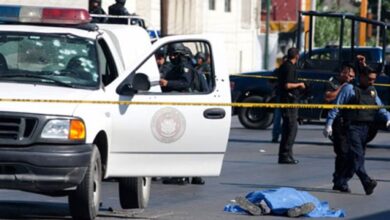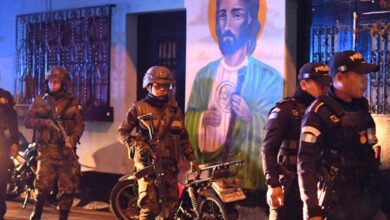Antoine Griezmann: French by birth, Uruguayan by heart
On repeated occasions, the French striker has expressed his affection for Uruguay, a nation he had to face in the 2018 World Cup in Russia

Striker Antoine Griezmann is French by birth, but he seems to be Uruguayan at heart. The attacker of the Atlético de Madrid and of the France National Team, with which he has just been crowned world champion, has shown on countless occasions his enormous appreciation to Uruguay and its entire culture; but, how did this connection with the Latin American country originate?
Leer en español: Antoine Griezmann: francés de nacimiento, uruguayo de corazón
Uruguayan mentors
Martín Lasarte and Carlos Bueno were the two Uruguayans who initiated Antoine Griezmann's relationship with the South American country. The first was the coach who made him debut professionally in the Real Sociedad de Fútbol of Spain, and the second was the experienced partner who welcomed him and taught him several things of the profession, being a great example for the French. "He came to pick me up at home to take me to train. He did not care that we competed for the same position, there was a solidarity, it is something that I have only seen in South American soccer," said Griezmann, according to statements collected by the EFE agency.
"He learned a lot from Uruguayans and he loves to talk like us. He always said it, he always liked it and continues to do so," said Carlos Bueno in an interview with Sport 890. The Uruguayan striker not only inculcated in Griezmann his love for the South American country, he also taught him to drink mate and turned him IGNORE INTO a fan of Peñarol.
Griezmann was advancing in his career and after his signing with the Atlético de Madrid he met other Uruguayans, such as Diego Godín. "Diego is a great friend, I'm with him every day, in the dressing room and off the field, that's why he's my little daughter's godfather (…) The first time I signed I called him, he told me about the club, is what made me want to sign for Atlético de Madrid," said Griezmann in an interview collected by EFE.
The Uruguayans have been a fundamental part in Griezmann's life. For this reason, the match for the quarter final of the 2018 World Cup in Russia between Uruguay and France was one of the most special in the French striker's career. "It's a nationality that I love, a country that I love, it's going to be very hard emotionally, but I have confidence in making a good match," Griezmann said days before the meeting, according to EFE.
That match ended with the victory of France by a score of 2-0. Griezmann scored the second goal, but because of his love for the celestes he decided not to celebrate the goal. "In my first steps in soccer were the Uruguayans of the Real who helped me and who taught me the good and the bad of this sport. I owe them a lot, I have not celebrated it out of respect ", said Griezmann once the meeting ended, in statements collected by El País. This was a show of loyalty, love, and respect.
You can also read: Africans in the Premier League: Riyad Mahrez, the Algerian who will wear the Manchester uniform
Love for its style of playing
The Uruguayan culture has not only changed Antoine's daily life, it also shaped his style of play. The Frenchman has stood out during his career, even more so when he was at Atlético de Madrid, for sacrificing for his team, for defending and attacking tirelessly for the collective well-being.
The garra charrúa is greatly admired by Griezmann and that is why he adopted it in his game. "Uruguay's style is what we saw against Portugal. It's a very solid 4-4-2 and their forwards help on the counter-attack. They play together and they give everything for their team-mates, which is something I see every day at Atletico and I love it. Cavani's style, a man who defends and works for the team, that's what I admire," Griezmann said in statements collected by Marca.
It is a mutual love
If Griezmann professes love for Uruguay, this country professes pride and admiration for Griezmann. It is for this reason that the Municipality of Montevideo proposed declaring the French striker as an illustrious visitor to the city, when he visits the Charrúas in December 2018. "In this case, we are talking about a distinguished athlete, world champion and someone who somehow has put the name of Uruguay in the public arena in recent times, which has been highlighted in some way as a personal fan of our country and our customs, "said Deputy Secretary-General Christian Di Candia in statements granted to EFE.
Griezmann is very popular in Uruguay, especially for the Club Atlético Peñarol, a club of which the Frenchman is a fan. "I was the one who inculcated him everything for the Peñarol. We went to the house to watch the Peñarol games, I gave him a T-shirt and he put it on. From there he became a fan and fell deeply in love, "said Carlos Bueno in an interview with Sport 890. That's why Peñarol, the aurinegro club, congratulated Griezmann on Twitter once the World Cup ended:
Félicitations Champion! @AntoGriezmann @fifaworldcup_es pic.twitter.com/SZNCA1aqsn
– PEÑAROL Official (@OficialCAP) July 15, 2018
The love between Griezmann and Uruguay is mutual, and the French made it even bigger when in a press conference after the match that made him world champion, an Uruguayan flag was hung on his shoulders. In some way, Latin America had a worthy representative in the final of the World Cup.
LatinAmerican Post | Javier Aldana
Translated from "Antoine Griezmann: francés de nacimiento, uruguayo de corazón"





